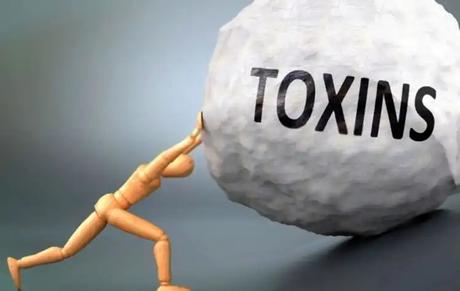
As everyday toxins are a part of human existence, steering clear of them completely is next to impossible. They are everywhere you can imagine- in the air you breathe at home and outdoors, the food on your table, and the water you drink. Even worse, they lurk in harmless-looking things of daily use, such as medicines, household cleaners, cosmetics, and personal care items. You can imagine the hazards these toxins and pollutants cause to your loved ones. Unborn babies, young children, pregnant women, and the elderly are more prone to damage.
The Camp Lejeune water contamination disaster is an example of the worst implications of chemical exposure, as many women lost their babies and many were born with brain damage. Countless victims reported various forms of cancer over the years. While the risks from chemical exposure abound, awareness gives you a good start for building defenses against these culprits. Let us share some practical tips to protect your loved ones from everyday toxins.
Read the labels
Remember to read the labels every time you buy chemical products like cleaners and pesticides. Likewise, check the ingredients of cosmetics and personal care products. Also, follow the precautions and instructions while using them, specifically around children and pets. Be careful about storing chemical-based products out of reach to minimize the risk of accidental ingestion. Check hazard symbols and avoid using suspicious products. You can opt for natural alternatives or herbal variants to ditch the chemicals in everyday items. Avoiding unnecessary use of medicines and supplements is equally crucial.
Avoid canned food
If you take pride in serving the most reputed canned food brands to your loved ones, ditch them sooner than later. Bisphenol A or BPA is a hazardous chemical found in the lining of aluminum cans. The worst part is that you may consume it with the food in the can. You can avoid canned variants and opt for tetra packs instead. Even better, skip canned, packaged, and frozen products, and opt for fresh fruits and vegetables. You may even grow your own food if you want to eat organic and avoid the ones cultivated with the use of chemical fertilizers and pesticides.
Test your water supplies
The most dangerous everyday toxins often lurk in residential water supplies. The chemical exposure of Camp Lejeune residents through water supplies is the scariest of all disasters in American history. The ordeal continues decades after the event, with victims still reporting fatal diseases like cancer and renal toxicity. The recent Camp Lejeune Justice Act has led to many claims by victims. If you or a loved one suffered, you may contact a water contamination attorney to seek compensation from the government for the act of negligence. As of now, testing your supplies is the best way to assess your risks. You must report any anomalies and switch to bottled water until the authorities address the problem.
Be watchful with plastic use
Plastic is high in chemicals, so you must use it sparingly. Avoid placing plastic utensils in the microwave, as the high temperature can cause chemicals to leach into food. Also, steer clear of washing plastic items in the dishwasher. Hand-washing them with mild soap and water is a better alternative. Discard plastic food containers once they are etched. Avoid bringing plastic bags, packaging, and bottles at home. Minimizing the use of plastic is good for the environment, besides preventing health issues for your loved ones.
Mind the household dust
Surprisingly, household dust may be more harmful than you imagine, as it can contain toxins and pollutants. The daunting concern is that these toxins circulate within the indoor air, so you must eliminate them to avoid health hazards for your loved ones. Regularly vacuuming the carpet and rugs is a good start, but remember to invest in a vacuum cleaner with a HEPA filter. Mopping floors with a wet cloth prevents the accumulation of dust from indoor electronics, furniture, and carpeting. Ensure enough fresh air inside your living space with good ventilation. But avoid the entry of outdoor air during periods of high pollution levels.
Protecting your loved ones from everyday toxins should be your top priority. Fortunately, eliminating hazardous chemicals from your home and life is easier than you imagine. Following these practical measures is enough to make your living space safe, healthy, and low on toxic risks. Although you cannot ditch all the potential hazards, these steps help you minimize them as far as possible. Embrace them as a way of life sooner than later!

